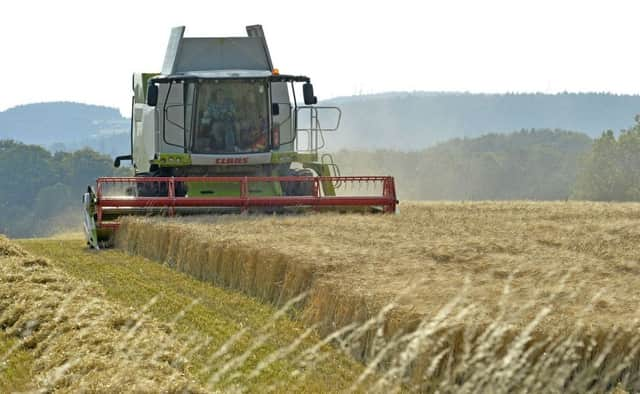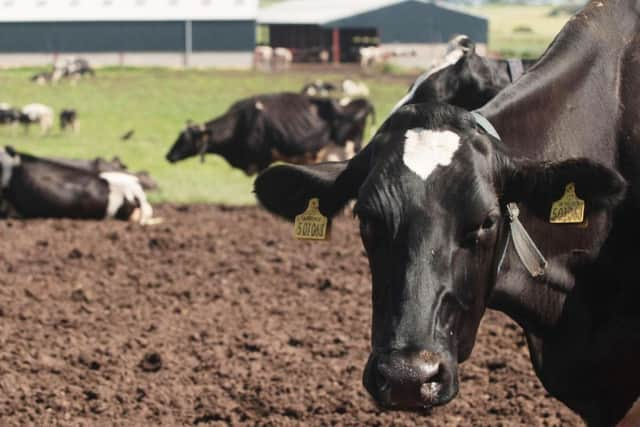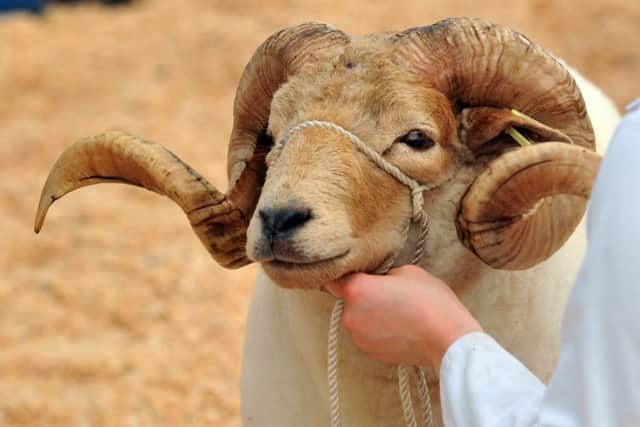How Yorkshire farmers are leading the fight against climate change to safegard our environment for generations – Charles Mills


Really the answer is: we all are.
And now we have a collective responsibility to make things right.
As farmers, we are responsible for 10 per cent of emissions nationally and we must hold our hands up to this. Half of this is due to methane from livestock, while the other part is due to nitrous oxide which is mainly from fertilisers used on crops.


Advertisement
Hide AdAdvertisement
Hide AdSince 1990 the greenhouse gases have fallen by 19 per cent and this is mostly down to improved use of fertilisers, with more farmers using soil and crop mapping technology to target their use of fertiliser much more effectively.
The most important thing to remember in this debate is that farmers in the UK produce 60 per cent of the nation’s food. If we were to rely on imported food, that would be unacceptable because we would simply be exporting our climate change footprint to another country who may produce food to standards considered illegal in the UK.


Advertisement
Hide AdAdvertisement
Hide AdFew of us need reminding of the recent images of the Amazon burning; can we morally stand by and watch this happen? No, we all have a part to play and it starts by tackling our own domestic efficiency.
For farmers, this could be through improved accuracy and timing of fertiliser applications or improved understanding of livestock diets to reduce methane emissions. We must also remember, however, that 27 per cent of emissions can be directly attributed to transport use. Perhaps we could all consider if that next flight or trip in the car is necessary before pointing the finger at livestock on UK farms.
There needs to be more Government support for farmers to improve carbon storage. Carbon is what is being released and is damaging the atmosphere so if we can store it in the ground via environmental schemes, this will be a major contribution. UK soils – from peatland bogs to lowland clays – are a fantastic source of carbon storage, and so are the 30,000km of hedgerows planted on farms under agri-environment schemes. More can be done.


Advertisement
Hide AdAdvertisement
Hide AdAt the Yorkshire Agricultural Society, we run the Tye Trophy awards at the Great Yorkshire Show every year to recognise the achievements of successful farms who go above and beyond when it comes to environmental sustainability. The more we can do to promote environmental schemes the better.
We also reward innovation in farming with the White Rose What’s Next award at the show and, in recent years, have been seeing more products which will have an impact on sustainability. This year’s entries included a combined tractor and telescopic handler, reducing the need to run two vehicles, a new electric all-terrain ranger, machinery designed to handle surplus wood on farms to create new products, rather than burning it or leaving it to rot, and a formula for treating silage to make it more stable and, therefore, reduce the need for additional silage making and storage.
We also celebrated the creation of new woodlands with the Forestry Award this year. The award looks at different aspects of forestry each year and this year focused on the best woodland planted in the region between 1990 and 2010. Many of the woodlands planted during this period were on farmland and it was interesting to see how they had been maintained, guaranteeing their future sustainability. Forestry and woodland management is an integral part of maintaining our countryside and with the Government emphasis on creating more woodland, in terms of space, farmland in Yorkshire could have a pivotal role to play.
On the pesticide front, we are taking our own action at the Yorkshire Agricultural Society as our Farmer Scientist Network reaches the end of a successful trial into biological alternatives to pesticides.
Advertisement
Hide AdAdvertisement
Hide AdThe awareness of farming’s effect on the environment has increased massively in the time that I have been working the land. As a young farmer, I would never have imagined that tractors and combine harvesters would use GPS for more accurate sowing and more efficient harvesting – or that farmers would be using drones to spot which part of their crops need treatment, rather than spraying dozens more acres that strictly necessary.
Uncertainty over the future of UK agriculture post-Brexit makes it difficult to predict what Government initiatives will come into being in the next few years. We know there are forest planting plans but how will that translate to field margins and hedgerows? Will stewardship schemes be reintroduced? Will there be a benefit in planting cover crops for nesting birds?
We certainly don’t have all the answers but I believe that, contrary to popular opinion, Yorkshire farmers are adaptable, open to change and ready to embrace new ways of farming if they mean that we can remain productive, meet changing demands and work to improve the environment for everyone.
We can’t pretend to have all the answers, but regulators must not throw the baby out with the bath water. Now is not the time to make knee-jerk reactions in an attempt to reduce emissions from the agriculture sector. The potential unintended consequences of meat taxes or restricting access to fertilisers could change the face of our beautiful Yorkshire countryside forever and not to its benefit.
Advertisement
Hide AdAdvertisement
Hide AdYorkshire farmers not only produce healthy, affordable food but also our stunning landscapes and – in the future – perhaps even a greater level of carbon storage in our soils and trees that benefit the world over.
Charles Mills is Show Director of the Great Yorkshire Show – and also Countryside Live which takes place in Harrogate this weekend.